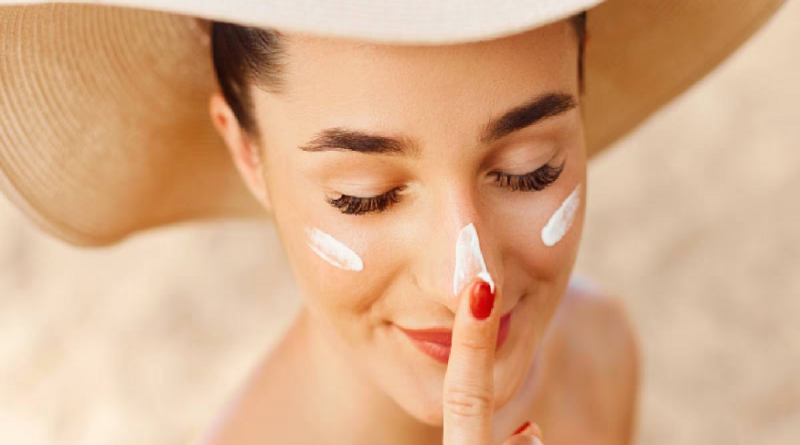Exploring the importance of sunscreen for oily skin
Using sunscreen forms a critical element in daily skincare routines designed for people dealing with oily skin. Long-term sunlight exposure leads to skin deterioration while age-related changes produce brown spots, and ultraviolet rays attack the skin tissue. People with oily skin face difficulty discovering sunscreen products suitable for their conditions. UV radiation protection depends heavily on selecting the best sunscreen cream for oily skin and facial use. This investigation combines the assessment of sunscreen advantages with recommendations for products which support oily skin health.
1.Sunscreen Essentials for Oily Skin
The necessity of sunscreen for ultraviolet radiation protection makes it an essential item in any skincare routine. UV rays penetrate skin depths to trigger both sunburns and age-related skin damage that increases the risk of developing skin cancer which can severely compromise prolonged skin health. Oily skin faces identical dangers from clogged pores and breakouts even though it shows a natural predisposition to these conditions. People with oily skin who do not protect their skin properly might face worsened acne conditions together with secondary skin irritations when exposed to the sun. Sunscreen cream specifically designed for oily skin offers vital protection to preserve skin health by stopping both shine-related problems and pore-blocking events.
2. Deciding on the proper sunscreen forms the core of caring for oily skin
People with oily skin face significant difficulties when choosing sunscreen because many products create too much greasiness which leads to breakouts and complicates their regular skincare regimen. Sunscreen designed for oily skin must blend weightlessly with the skin while maintaining its non-comedogenic properties and offering a matte finish which prevents oil buildup throughout the day. It is critical to discover sunscreens which match skin compatibility measures alongside protection features. Oily faces require sunscreens that absorb oil properly but do so without disturbing the skin’s moisture and leaving behind a smooth hydrated texture. Gel-based and oil-free sunscreens are preferred recommendations for oily skin because these formulation types absorb efficiently without creating residual oil patches.
3. Protection against premature aging
Ultraviolet rays stand as the principal agent leading to premature ageing in people regardless of their skin type. UV rays from the sun trigger the breakdown of collagen and elastin fibres that eventually cause wrinkles and sagging skin which leads to premature ageing. Sunscreen choices specifically designed for oily faces need to safeguard users from both immediate and long-term damage from ultraviolet rays but especially serve sensitive skin. The regular application of sunscreen helps preserve the skin’s natural youthful features while preventing ageing effects from sun exposure specifically targeting individuals who manage oily complexion as well as acne or sebum problems.
4. Preventing hyperpigmentation and dark spots
Oily skin faces an elevated risk of developing post-inflammatory hyperpigmentation (PIH) because acne and other skin irritations leave dark spots behind that increase in prominence with time. Prolonged sun exposure both intensifies dark spots and makes it harder for treatment solutions to be effective. The best sunscreen cream for oily skin protects from UV rays while simultaneously decreasing hyperpigmentation risks through specific formulations that enhance skincare benefits. Routine sunscreen application decreases the likelihood of spots getting darker while maintaining a uniform skin tone. Sunscreen acts as a barrier against UV exposure that stops new pigmentation from developing and results in uniform skin tone.
5. Sunburn prevention for sensitive skin
Individuals with oily skin may develop sensitivity to the sun which can worsen rosacea and breakouts. Sunburn makes existing skin conditions worse by causing irritated skin with redness and increased inflammation that hampers the natural healing process. Oily face sunscreen provides sunburn protection in addition to skin smoothing properties which leads to reduced discomfort for users. A sunscreen that includes antioxidant substances like sun protectors alongside soothing compounds like aloe vera and vitamin E generates protective formulations appropriate for fragile skin which both protect from sunlight and offer healing benefits. Your skin achieves protection from these ingredients and simultaneously reduces inflammation to heal faster while growing healthier. People need to choose sunscreens that both defend against sunburns and balance sensitive oily skin requirements to prevent sunburn effectively.
6. Enhancing skin texture and appearance
Due to its natural oiliness, the skin has a thick feel and often becomes oily which leads to blocked pores that result in acne outbreaks thus damaging skin texture and appearance. Sunscreens developed for oily skin types come with a lightweight formula that avoids both heavy weight and excess oil buildup on the skin. A perfect sunscreen made for oily skin types works to improve the skin texture because it delivers a smooth matte finish that results in a fresh polished facial look. The cream controls daily oil production while giving the skin a fresh and non-greasy state which maintains balanced pores alongside skin tone. Such sun protection products improve the facial skin’s appearance through evenness along with a polished finish which does not worsen oil levels or produce new breakouts.
7. The role of sunscreen in acne prevention
Acne frequently occurs in individuals with oily skin since sunlight along with increased oil production creates blocked pores that generate painful flare-ups. Excessive skin oil and pore blockages along with sun exposure create difficult conditions for maintaining skin health because they worsen acne problems. People with oily faces should consider sunscreens that combine broad-spectrum protection with resistant oil formation to prevent acne flare-ups. Sunscreen products that include salicylic acid or niacinamide aid in acne management by reducing breakouts and minimizing potential flare-ups alongside their protection functions for skin prone to acne. The continuous application of appropriate sunscreen protects both your skin health and prevents sun-caused breakouts but helps you maintain a clear complexion.
8. Daily sunscreen uses for long-term benefits
Daily sunscreen application remains essential for permanent skin well-being because it safeguards against skin harm from both direct and indirect UV radiation exposure. People must understand sunscreen exists for daily use since UV rays break through clouds and create permanent skin damage over time. UV radiation penetrates through all weather conditions to harm skin tissue leading to permanent damage which often remains invisible to sight. People with oily faces should apply sunscreen daily regardless of weather conditions to maintain full-time protection throughout the entire year.
Individuals dealing with oily skin need to understand sunscreen functions as their fundamental protective barrier against outdoor stressors because its protective capabilities remain essential. The protection of skin tissue from UV rays remains essential for skin health because it defends against early ageing signs and skin pigment changes and prevents acne from developing. People with oily skin achieve sun protection by picking suitable sunscreen creams that prevent both additional oil production and blocked pores and acne formation. Oily skin individuals need to select the proper sunscreen to shield their skin from UV damage without disturbing their skin texture or complexion. Sunscreen serves as a vital skincare product suitable for anyone including those with oily skin because it offers protection using multiple formula types and delivers benefits beyond sun protection. Choosing the best sunscreen for oily face ensures protection yet keeps the skin fresh, dry, matte and breakout-free with the effect until the end of the day

